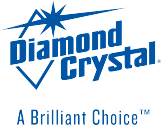06 January 2017
Water softeners help preserve the efficiency of water heaters
A study commissioned by the Water Quality Association, uncovered significant water heater efficiency benefits that come from soft water compared to hard water. The study tested water heaters fed with softened and unsoftened water under controlled laboratory conditions. For this study, 30 water heaters supplied by the WQA were tested over a 90-day period. 1
The electric and gas storage water heaters, and the instantaneous gas water heaters on soft water performed well throughout the entire testing period. Conversely, none of the water heaters on unsoftened water made it through the entire testing period because the outlet piping system became clogged with scale buildup.
Gas water heaters
Gas storage tank household water heaters operated on softened water maintained the original factory efficiency rating over a 15-year lifetime. On the other hand, hard water can lead to a loss of efficiency in gas water heaters. Gas water heaters using hard water lost half their efficiency over a 15-year lifetime.
Each five grains per gallon of water hardness causes a 4% loss in efficiency and 4% increase in cost for gas storage tank water heaters when using 50 gallons of hot water per day. 1
Electric water heaters
The heating element is the heart of electric water heaters. The life of the heating element in unsoftened water is shortened due to scale buildup increasing the operating temperature of the element. “The average rate of scale buildup in the electric storage water heaters on unsoftened water was about 907 g/yr (2.00 lb/yr). The average rate of scale buildup in the electric storage water heaters on soft water was about 14 g/yr (0.03 lb/yr), which is almost negligible.” 1
Tankless heaters
Indoor instantaneous gas water heaters (tankless heaters) operated on softened water maintained the original factory efficiency rating over a 15-year lifetime.
The instantaneous water heaters on unsoftened water had to be delimed at 1.6 years. “The average efficiency of these units dropped from 80 percent at the start of the test to 72 percent when they were delimed. After deliming, the average efficiency of these units increased to about 77 percent, but was still below the 80 percent starting efficiency.” 1
1 https://www.wqa.org/Portals/0/WQRF/ResearchStudy_BenefitsOfSoftenedWater_ExecSummary.pdf
Tagged with:
